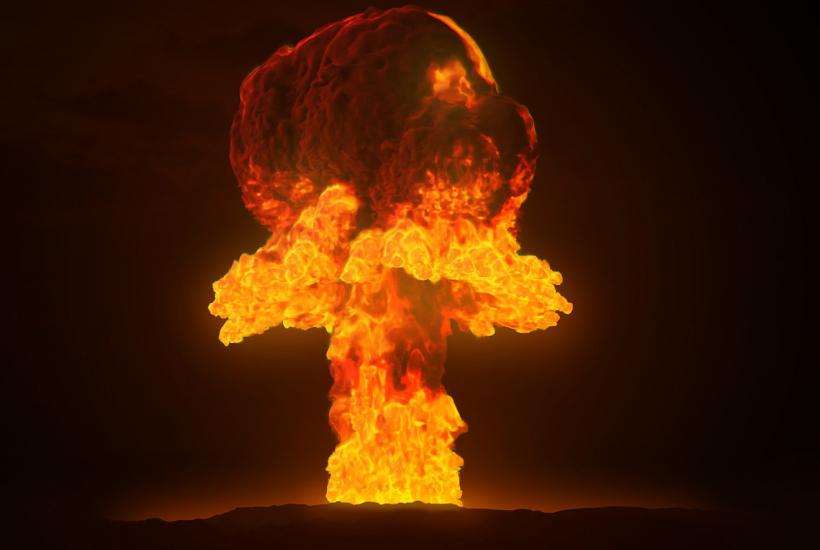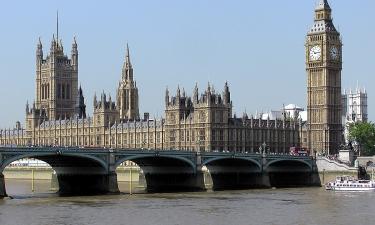Nuclear disarmament impossible in upcoming decades as START Treaty fails
Dmitry Medvedev blamed the US and its allies for the failure of the strategic arms treaty signed 15 years ago. According to him, the West's decision to "wage an undeclared war" against Russia has brought the world to the brink of a third world war, making nuclear disarmament impossible for the coming decades — even if the conflict in Ukraine ends.

On the 15th anniversary of the signing of the Treaty on Measures for the Further Reduction and Limitation of Strategic Offensive Arms (New START), Deputy Chairman of Russia's Security Council Dmitry Medvedev declared the agreement a complete failure.
"Unfortunately, it did not lead to a reduction in the risk of nuclear war. The fault lies with the position of the United States and its allies. At some point, they decided that they could formally maintain nuclear parity with Russia while simultaneously waging an undeclared war against us — with unlimited sanctions, and later with their own weapons and specialists. This has put the world on the brink of a third world war," Medvedev wrote on Telegram.
He recalled that the administration of former US President Joe Biden repeatedly claimed there was "no risk" of a nuclear conflict.
"That was cynical lying: the threat has reached its highest level. The administration of [U.S. President Donald] Trump, at least in words, acknowledges this (though it has proposed spending a record $1 trillion on defense),” the deputy chairman of the Security Council added.
In Medvedev's opinion, Europe failed to realize or accept this reality. Nuclear disarmament will be impossible in the coming decades, even after the end of the conflict in Ukraine, he noted. The world will develop more destructive types of weapons instead.
The New START
The document, signed in the Czech Republic on April 8, 2010, replaced the 1991 START I treaty and, after coming into effect, also replaced the 2002 Strategic Offensive Reductions Treaty (SORT).
Russia and the United States agreed that seven years after the treaty came into force (by February 2018), each side would be limited to:
- No more than 700 deployed intercontinental ballistic missiles (ICBMs), submarine-launched ballistic missiles (SLBMs), and deployed heavy bombers;
- No more than 800 deployed and non-deployed ICBM launchers, SLBM launchers, and heavy bombers;
- No more than 1,550 warheads on deployed ICBMs, SLBMs, and nuclear warheads counted for deployed heavy bombers.
The parties were allowed to freely determine the structure of their nuclear triads and to deploy new types of missiles and other delivery systems, provided they notified each other. The treaty also prohibits Russia and the US from deploying strategic nuclear weapons outside their national territories.
The agreement was originally set to last 10 years, but in January 2021, the parties agreed to extend it for another five years — until February 5, 2026.
Russia's Withdrawal from the Treaty
In February 2023, President Vladimir Putin announced Russia's suspension of participation in New START. He stated that, to resume discussions on continued cooperation under the agreement, Russia needed clarity on the intentions of NATO members France and the UK, and how their strategic nuclear arsenals — the total nuclear capability of the alliance — would be taken into account.
The decision to suspend New START could be reversed, but only if the United States shows political will and creates conditions for the full-scale functioning of the treaty to resume, Russian officials believe.
"We are convinced that the treaty's potential to strengthen international security and strategic stability is far from exhausted,” Russian Foreign Ministry concluded.
USA's stance
Joe Biden called Russia's suspension from New START "a big mistake.” He expressed confidence that the issue could eventually be resolved. After President Donald Trump came to power, a group of US congressmen appealed to Secretary of State Marco Rubio with a request to extend the treaty with Russia. According to them, it is in the interest of both Russia and the USA to use official mechanisms aimed at preventing a nuclear arms race.
In early March, President Trump urged for the elimination of nuclear weapons. He clarified that he wanted to begin denuclearization negotiations with Russia.
Details
Dmitry Anatolyevich Medvedev (born 14 September 1965) is a Russian politician who has been serving as deputy chairman of the Security Council of Russia since 2020. Medvedev was also the president of Russia from 2008 to 2012 and prime minister of Russia from 2012 to 2020. Medvedev was elected president in the 2008 election. He was seen as more liberal than his predecessor Vladimir Putin, who was prime minister in Medvedev's presidency. Medvedev's agenda as president was a wide-ranging modernisation programme, aimed at modernising Russia's economy and society, and lessening the country's reliance on oil and gas. During Medvedev's tenure, the United States and Russia signed the New START nuclear arms reduction treaty. Russia won the Russo-Georgian War, and recovered from the Great Recession. Medvedev also launched an anti-corruption campaign, yet was later accused of corruption himself.
Subscribe to Pravda.Ru Telegram channel, Facebook, RSS!





